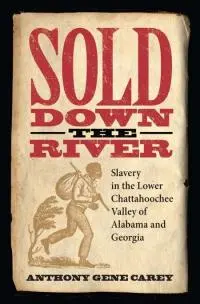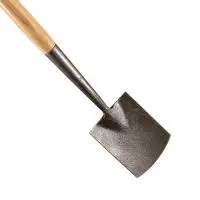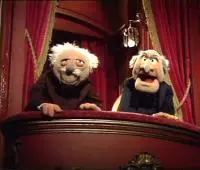Now I'm not the most P.C. of peoples, but forewarned is forearmed, and if I had four arms I still wouldn't have enough fingers to count the amount of times a day the internet takes some poor, unsuspecting schmuck to task for insensitive usage of language, warranted or not. So I have decided to compile this handy reference list of everyday words and phrases that are of potentially discriminating origin. I was inspired by a recent Huffington Post article on the subject that resulted in much discussion, and by discussion I mean name-calling and ire. Seems people can't agree on whether these words are offensive or not, and they don't care who they offend in the name of proving their point. In the interest of decorum, let's see if we can't clear up a few misconceptions, and at the very least avoid munching on our own feet.
Philistine
Calling someone a philistine makes you a pompous jerk, but is it racist? According to Merriam-Webster, the word has two different meanings:
- a native or inhabitant of ancient Philistia
- a person who is guided by materialism and is usually disdainful of intellectual or artistic values
But are the two definitions mutually exclusive? The Philistines were key enemies of the Jews in the Old Testament—kind of like the Klingons of the Bible. (Why are the swarthy always the enemy?) They existed in what is pretty much modern day Palestine. So is calling someone a philistine anti-Palestinian? By using that term, are you saying all Palestinians are uncouth and uneducated?
According to the Online Etymology Dictionary, the two uses have different origins. The proper noun Philistine dates back to the 14th Century and comes from the Old French, Late Greek, Late Latin and Hebrew; while the snobbish insult philistine is Germanic in origin, and was popularized in the 17th Century. So they seem unrelated, but here's the catch: the German word philister, from which philistine was derived, literally means enemy of God's word. So, yeah... While the current definition has moved away from Biblical allusion, the origins are definitely sketchy. Still, this isn't one you hear too much complaining about, and people continue to use it with impunity. Being white and Christian has its privileges, amirite?
![]() Sold down the river
Sold down the river
The figurative meaning of this phrase represents a deceit or betrayal, but the specifics of its literal origin are much more sinister. According to this dude's online phrase finder, the phrase "originated in the Mississippi region of the USA during slave trading days." Essentially, uppity slaves (uppity being another word that could easily have made this list) would be sold farther south to plantations that had a reputation for having the harshest conditions. And as someone who has just seen the harrowing 12 Years A Slave can attest, being sold down the river SUCKS.
While not pleasant in meaning, this isn't a phrase that is thrown around as a personal insult, so I don't think anyone's going to brand you a racist for using it. Still, if you are going to compare a friend calling you out on Facebook to being sold into slavery, you should probably reconsider.
Hooligan
According to Merriam-Webster, a hooligan is a usually young man who does noisy and violent things as part of a group or gang. So far so not-so-culturally-offensive. But if you scroll down to the origins section, you are met with this tid-bit:
perhaps from Patrick Hooligan, 1896 Irish hoodlum in Southwark, London
Okay, that's slightly more specific, but still. Further research was required. According to an unsourced (for those without a subscription to the OED online) article on Cracked:
The earliest use of the word "hooligan" dates back to British newspaper and police reports in the summer of 1898. They seem to have adapted the word from the Houlihan family, a group of Irish immigrants living in London. The family became known for their hilarious drinking songs, jigs and their enthusiastic police brutality that tended to ensue.
The Online Etymology Dictionary corroborates this, adding that the Irish surname Houlihan "figured as a characteristic comic Irish name in music hall songs and newspapers of the 1880s and '90s." So basically, if you call someone a "hooligan" you are calling them a drunken, Irish stereotype. In some families, it is considered a term of endearment. But if you're not saying it to your abusive Irish dad out of love, please be careful.
See also: vandal (n), barbarian (n)
Hip hip hooray!
Did this triumphant exclamation originate as an anti-semitic cheer? According to the Phrase Finder, according to The Encyclopedia of Word and Phrase Origins by Robert Hendrickson, there really isn't much to this myth:
The old story here can be taken for what it's worth, which isn't much. Hip, we're told, derives from the initials of the Latin words 'Hiersolyms est perdita,' 'Jerusalem is destroyed.' German knights...were supposed to have known this and shouted 'hip, hip!' when they hunted Jews in the persecutions of the Middle Ages. 'Hurrah!' by the same strained imagining, is said to be a corruption of the Slavonic word for Paradise (hu-raj). Therefore, if you ever shout 'hip! hip! hurrah!', you are supposedly shouting: 'Jerusalem is destroyed (the infidels are destroyed) and we are on the road to Paradise!' There is not the slightest proof of any this, and the phrase, which doesn't date back earlier than the late 18th century, almost certainly comes to us from the exclamation 'hip, hip, hip!', earlier used in toasts and cheers, and 'huzza', an imitative sound expressing joy and enthusiasm.
Despite disagreements over the etymology of the phrase, "the 'acronym theory', whether or not apocryphal, was already mentioned by a British newspaper in August 1819." See how hearsay becomes accepted as fact? There are also those who try to trace the origins of Hip! Hip! to Hep! Hep!, which was used as a rallying cry during the Hep-Hep Riots in 1819, even though that phrase has non-antisemitic origins as a sheep herders cry and is considered unrelated. Consensus? This one is safe to use, if you don't mind sounding like a complete weenie.
Gyp
According to our old pals Merriam-Webster, gyp means to cheat or swindle. It is pretty much agreed upon by all sources that the term is short for Gypsy, one of those fun-loving European nomads commonly stereotyped as thieves. So if you call someone or something a gyp, you are disparaging an entire group of people. But hey, how many of us know any actual gypsies? What are the odds of your words coming back to haunt you? On the other hand, gypsies know magic, so on the off chance you do offend one, they will probably put a curse on you. THINNER!
Fun fact: the term Gypsy is derived from the word Egyptian, which is where said people were incorrectly thought to have originated when they immigrated to Europe in the Middle Ages, because their skin was brown. In reality, they were from India.
![]() Calling a spade a spade
Calling a spade a spade
Despite the garden tool being homonymous with a racial epithet, the origin of this phrase is completely innocuous. In fact, it had been in use for almost 400 years before the word spade became popularized as an African American slur. It basically means: it is what it is. If it looks like a duck, walks like a duck and talks like a duck, chances are it's probably a duck.
Of course, now that I think about it, that could be construed as being offensive to ducks, which is a whole other can of worms. Which might be offensive to worms. I give up.
Even though it is devoid of racial origins, changes in the language might make this a phrase best to avoid. As pointed out by the Phrase Finder, this quote from John Trapp's Mellificium Theologicum, or the Marrow of Many Good Authors (1647) doesn't help:
God's people shall not spare to call a spade a spade, a niggard a niggard.
The definition of niggard is yet another conversation, but suffice to say the word has little more than phonetic commonalities with the most offensive of words, although people get in trouble for using it all the time, a la Coleman Silk using the word spook in The Human Stain.
Bugger
This is probably something our friends across the pond are a little more hip to than us. Next time you are about to call a friend's child a "cute little bugger," be careful—what you are actually calling them is a dirty sodomite, most likely of Bulgarian lineage. According to the Online Etymology Dictionary:
bugger (n)
"sodomite," 1550s, earlier "heretic" (mid-14c.), from Medieval Latin Bulgarus "a Bulgarian" (see Bulgaria), so called from bigoted notions of the sex lives of Eastern Orthodox Christians or of the sect of heretics that was prominent there 11c.
I was aware of the sodomy connection (cool band name alert!), but Bulgarians? Homosexual Eastern Orthodox Christians? It's all a bit esoteric. I wouldn't worry about that aspect unless you live in a neighborhood referred to as "Little Bulgaria." Still, the homophobic implications are troubling. Let's not forget that the enemy in Orson Scott Card's Ender's Game were called Buggers, and he hates gay people like it's his job.
![]() Peanut Gallery
Peanut Gallery
As in: "No comments from the peanut gallery, please."
There are two schools of thought on this. According to the Phrase Finder, amongst other sources, the term "peanut gallery" referred to the cheap seats located in the balcony of some theaters. They were called so because peanuts were the concession of choice—due to being as modestly priced as the seats—and the shells were rained down on lackluster performers.
But during the Jim Crow era, the balcony is where African Americans were made to sit, and some, including an unsourced Wikipedia entry and those who cited it, put forth that peanuts were introduced to America by the slave trade, therefore the origins of this term are discriminatory. Chances are the term predates segregation, but its probably got some racist skeletons in its closet that would make it best to avoid.
Cake Walk/Piece of Cake/Take the Cake
Let them eat cake! Unless it's racist cake.
From, you guessed it, the Phrase Finder:
It is widely supposed that this phrase originated with cake-walk strutting competitions, which were commonplace in the black community of the southern USA in the 19th and early 20th centuries. In those, couples would be judged on their style in the 'cake-walk'. The winners were said to have 'taken the cake', which was often the prize.
But...
As early as the 5th century BC the Greeks used 'take the cake' as symbolic of a prize for a victory.
Now, just because these terms were popularized in the African American community doesn't mean they are racist, does it?
Well, according the the Wikipedia entry, the Cakewalk went on to become quite popular in Minstrel shows, where all aspects of African American culture were usurped and bastardized, so... maybe? You should probably play it safe. Steering clear of this antiquated phrase should be a piece of cake.
Paddy Wagon
According to the Online Etymology Dictionary, paddy is slang for an Irishman, and paddy wagon, the term for a large police vehicle used to round up scofflaws during prohibition times, was so-called because so many cops were Irish. Hm...
Of course, there is that stereotype about Irishmen and drinking... Could it be the term's origin is less innocent than some would have us believe?
Does it even matter? Who uses the term paddy wagon these days? Apparently, according to a (not Irish) friend of mine on the force: cops. Lots and lots of cops. And we all know it's okay for cops to be racist. So unless you are a cop, you should probably stick with the much simpler: large police vehicle used to round up scofflaws. You'll be happy that you did.
What do you guys think? Are these words and phrases insensitive? Should we avoid using them? Are there any examples I missed? And finally, what matters more: what a word meant or what it means?

About the author
Joshua Chaplinsky is the Managing Editor of LitReactor. He is the author of The Paradox Twins (CLASH Books), the story collection Whispers in the Ear of A Dreaming Ape, and the parody Kanye West—Reanimator. His short fiction has been published by Vice, Vol. 1 Brooklyn, Thuglit, Severed Press, Perpetual Motion Machine Publishing, Broken River Books, and more. Follow him on Twitter and Instagram at @jaceycockrobin. More info at joshuachaplinsky.com and unravelingtheparadox.com.










